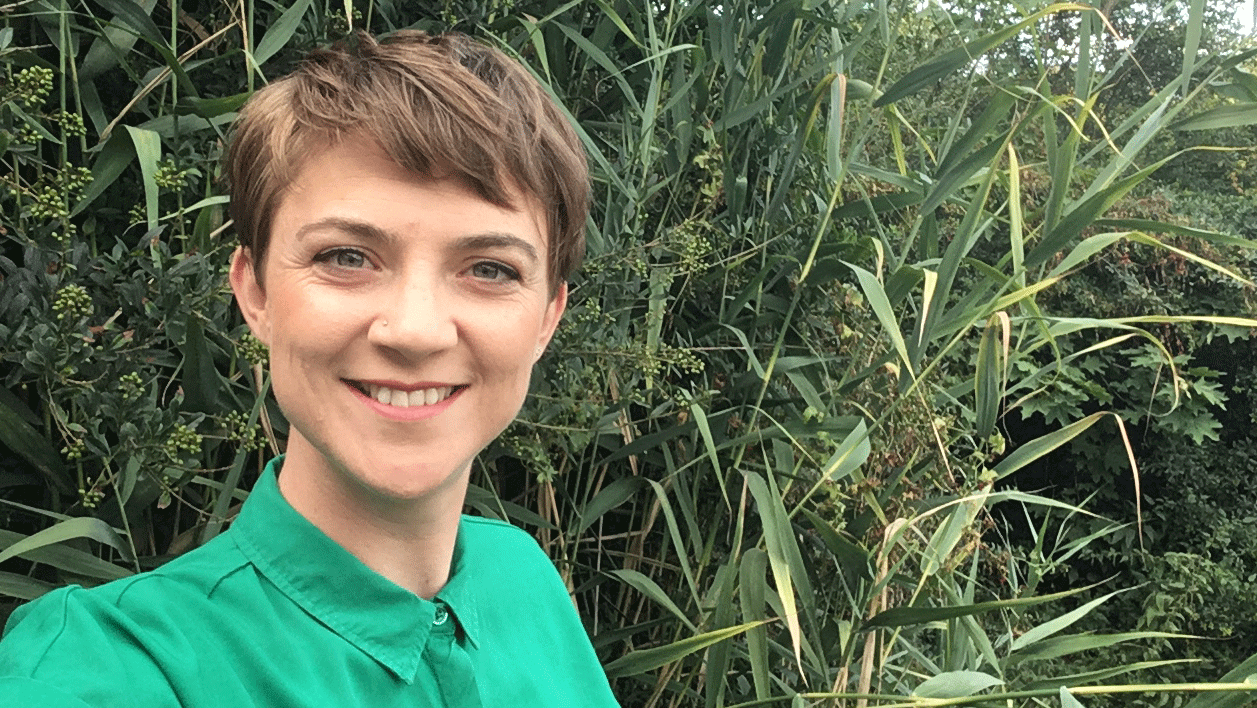
03 Oct Training at AIGHD sets stage for unique career path for former PhD student
As part of our 10th anniversary celebrations, we’re looking back on some of our milestones and impact. Follow our celebrations through #AIGHDturns10. [Watch] Sonia’s interview to hear more about her experience at AIGHD.
A PhD student from 2013-2016, Dr. Sonia Boender conducted research as part of the PASER and MARCH projects under the supervision of Prof. Tobias Rinke de Wit and Prof. Michael Boele van Hensbroek. The project focused on HIV drug resistance in sub-Saharan Africa and remains today one of the single largest contributors of data and publications on HIV drug resistance to the WHO. It was the multidisciplinary and applied public health research project that inspired her interest in the discipline of field epidemiology.
“HIV is one of the biggest outbreaks we’ve ever faced and requires a very interdisciplinary research approach – it covers the whole spectrum from basic science, clinical and microbiological work, to social sciences and public health. It also includes a big societal component, so in that way, my PhD research covered almost every aspect of field epidemiology,” said Sonia.
Epidemiology comes in many shapes and forms, classically including studies on infectious diseases, but increasingly also non-communicable diseases such as cardiovascular disease. Field epidemiology focuses on applied work in the field where information is gathered about an outbreak, data are collected and interventions put in place to prevent, control and stop outbreaks. Key areas of expertise are surveillance and applied research, and require strong communication skills. Specialists in this area focus on acute diseases like measles, Ebola, and cholera, for example.
“We’re moving around the world faster and more easily than ever before and this accelerates the factors that lead to infectious disease outbreaks. It’s increasingly important to respond fast and adequately, because though we may have borders between countries, infectious diseases don’t care about borders or politics. The question is not whether the next large scale outbreak occurs, but when, and how we will respond to it. Field epidemiology is the most direct way to understand, prevent and control infectious disease outbreaks, and to prepare for what is coming.”
Embarking on a new career path
After working closer to home for the Dutch HIV cohort studies (ATHENA cohort) at Stichting HIV Monitoring, , Sonia applied for a specialized field epidemiology fellowship through the European Center for Disease Prevention and Control fellowship program, which seeks to build networks and strengthen field epidemiology and response across Europe.
In recent years, approximately 150 applicants apply for an average of 12 EPIET positions based in exchange to a different EU/EEA country – Sonia was one of the successful applicants. Throughout the two-year program follows a learning-by-doing approach and the fellows get together for a total of 10 weeks of training, to better understand the challenges faced in various regions and develop their skills in biostatistics, communications, teaching and training. During her fellowship, Sonia is based at the Robert Koch Institute in Germany.
“The field epidemiology trainings help us to approach public health emergencies in the same way, using the same methods and techniques, in the same language. This in-person collaboration helps to standardize our approach so we’re better prepared to handle outbreaks and epidemics as a collective.”
Challenging herself to continue to grow
Moving forward, she sees herself continuing to pursue opportunities that incorporate both her passions: field work and science. By working in both areas, she seeks to grow her skills in infectious disease response while evolving as a researcher by ensuring her techniques are evidence-based.
“Especially now since I’ve been in different countries and settings throughout my career, I really see how well AIGHD performs when it concerns interdisciplinary collaborations around the world, which isn’t always easy to do,” said Sonia.
“My time at AIGHD inspired me not to be afraid to embark on these kinds of large, international and interdisciplinary activities. They may be challenging and by default things change along the way, but in the end, it’s positive and very rewarding.”
